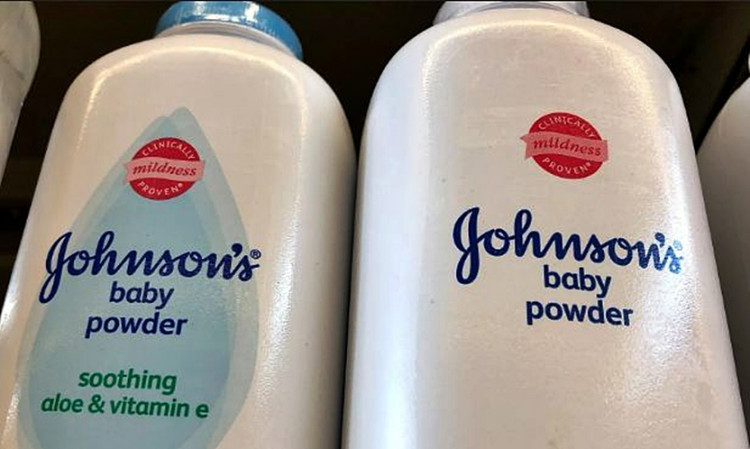American baby powder maker Johnson & Johnson has been ordered to pay $4.69 billion to 22 women in the United States who successfully sued the company, claiming asbestos found in Johnson's Baby Powder and Shower to Shower gave them ovarian cancer.
The jury award consists of $550 million in compensatory damages and $4.14 billion in punitive damages. This is the largest ever verdict against Johnson & Johnson, which faces more than 9,000 cases worldwide arising out of the contents of its talcum powder.
A jury in St. Louis, Missouri awarded the huge penalty, which comes to $25 million per plaintiff. Legal experts said this is the first case that successfully argued talcum powder contains asbestos, which in turn causes cancer. The women testified that they used Johnson's talcum powder as a part of their daily feminine hygiene routine for years or decades.
The women plaintiffs in this ovarian cancer case said they all used talc-based powder for decades to keep their bodies smelling fresh and clean, particularly in their genital areas.
This case is one of the first where lawyers successfully convinced a jury that Johnson's Baby Powder and Shower to Shower talcum powder contain cancer-causing asbestos. Scientists for the plaintiffs presented evidence showing that tissues with ovarian cancer cells contained asbestos and talc particles.
"For over 40 years, Johnson & Johnson has covered up the evidence of asbestos in their products," said Mark Lanier, lead counsel for the plaintiffs. "We hope this verdict will get the attention of the J&J board and that it will lead them to better inform the medical community and the public about the connection between asbestos, talc, and ovarian cancer."
Despite the award, the allegation talc causes cancer isn't conclusive science. Some studies show an elevated risk in women that use talc in their genital area for a long period of time. Other studies show no such connection, however.
Doctors, however, have noticed the presence of talc particles in cancer tumors but it's unknown how the contamination occurred, and if this contamination led to the development of cancer.
Johnson & Johnson said it remains confident its "products do not contain asbestos and do not cause ovarian cancer." It said it is disappointed with the verdict and will appeal.
"Every verdict against Johnson & Johnson in this court that has gone through the appeals process has been reversed and the multiple errors present in this trial were worse than those in the prior trials which have been reversed," said a J&J statement.






